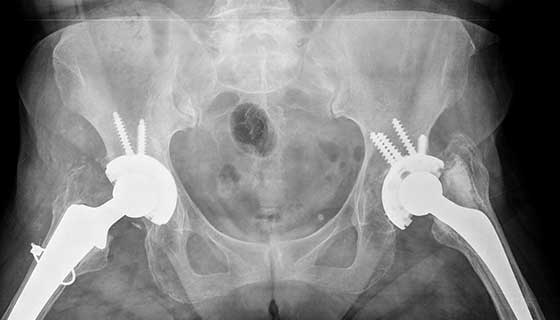Share this article with your network of friends!
As seniors continue to lead active and fulfilling lives, some may find themselves facing the challenges of hip pain and decreased mobility. For those who have tried various treatments without success, a hip replacement surgery may offer a new lease on life. In this article, we delve into the world of hip replacement for seniors, exploring the benefits, considerations, and recovery process, empowering seniors to make informed decisions and embrace the freedom of pain-free movement.
1. Understanding Hip Replacement Surgery:
Hip replacement surgery, also known as total hip arthroplasty, is a common procedure aimed at alleviating chronic hip pain and improving mobility. During the surgery, a damaged or arthritic hip joint is replaced with a prosthetic implant, enabling smooth and painless movement.
2. Indications for Hip Replacements:
Seniors experiencing persistent hip pain, stiffness, and limited mobility due to conditions like osteoarthritis, rheumatoid arthritis, hip fractures, or avascular necrosis may be candidates for hip replacement surgery. It is essential to consult with a qualified orthopedic surgeon to determine if this procedure is appropriate for individual cases.
3. Benefits of Hip Replacements:
The advantages of hip replacement surgery are manifold. Seniors can experience significant pain relief, improved joint function, and enhanced mobility, enabling them to engage in daily activities and hobbies they may have previously avoided due to discomfort.
4. Preparing for Surgery:
Before undergoing a hip replacement, seniors will undergo a thorough evaluation by their medical team, which may include blood tests, X-rays, and other diagnostic assessments. It is essential to discuss medical history, medications, and any concerns with the surgeon to ensure a safe and successful procedure.
5. The Surgery Process:
In hip replacement for seniors, the surgery is typically performed under general anesthesia or regional anesthesia. The orthopedic surgeon removes damaged bone and cartilage from the hip joint and replaces it with a prosthetic implant designed to mimic the natural joint’s function.
6. Recovery and Rehabilitation:
Post-surgery, seniors will undergo a period of recovery and rehabilitation, which is crucial for successful outcomes. Physical therapy and exercises are essential for regaining strength, flexibility, and range of motion in the hip joint. Seniors should follow their healthcare team’s guidelines for a safe and effective recovery.
7. Embracing the Freedom of Movement:
As seniors progress through their recovery, they will experience the remarkable transformation that a hip replacement can bring. The newfound freedom from pain and increased mobility will open doors to a more active and fulfilling lifestyle, allowing seniors to embrace hobbies, exercise, and social interactions with greater ease.
Conclusion:
For seniors experiencing the limitations of hip pain and decreased mobility, a hip replacement surgery can be a life-changing solution. Understanding the benefits, preparing adequately, and committing to the rehabilitation process are essential steps in ensuring a successful outcome. With the guidance of a skilled medical team, seniors can look forward to regaining their independence, embracing the freedom of pain-free movement, and rediscovering the joys of an active and fulfilling life.
DISCLAIMER: This website contains articles for informational and entertainment purposes only. No articles on this website should be considered as professional advice for any medical, legal, or financial matter. Advertisements and content may contain affiliate links, where the website earns a commission for sales derived from our users.





